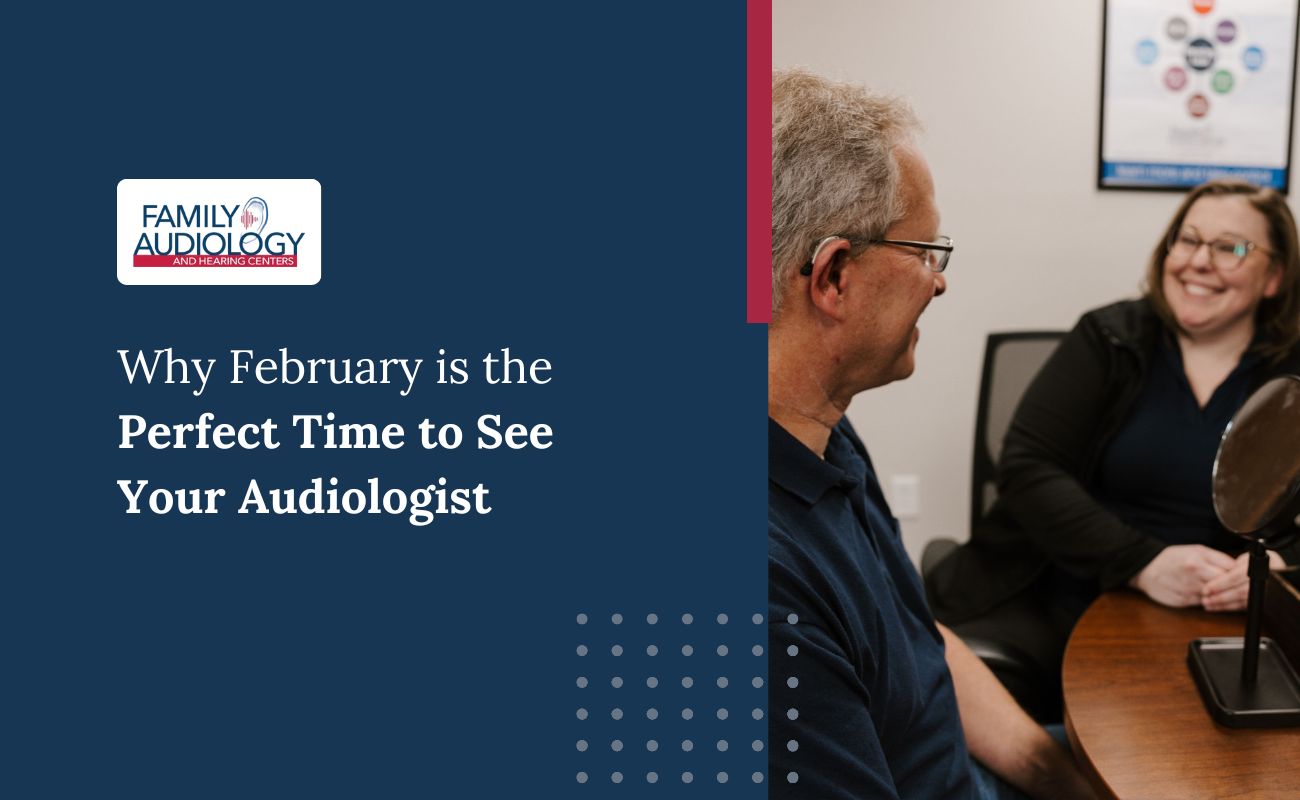The Connection Between Hearing Loss and Tinnitus: What You Need to Know



Tinnitus, often described as ringing in the ears, is a widespread condition affecting millions globally. It can occur independently, but it is frequently associated with hearing loss. Comprehending the link between hearing loss and tinnitus offers valuable knowledge for managing these conditions and enhancing quality of life. By recognizing the relationship and actively addressing hearing loss, it is sometimes possible to alleviate tinnitus symptoms.
Understanding Tinnitus
Tinnitus involves hearing noises that aren't actually present in the environment. People may experience a range of phantom sounds, such as ringing, buzzing, hissing, humming, or roaring. These sensations can occur in one or both ears, either continuously or on and off. While some individuals find tinnitus to be a minor inconvenience, others may struggle with more severe effects that interfere with daily activities, potentially leading to increased stress, anxiety, concentration issues, or sleep disturbances.
The causes of tinnitus are multifaceted and can stem from various factors. One of the primary culprits is prolonged exposure to loud noises, which can damage the delicate hair cells in the inner ear, resulting in tinnitus. Ear infections, excess earwax, or other obstructions can trigger tinnitus by interfering with the normal functioning of the auditory pathway.
Certain medications, particularly those classified as ototoxic, have the potential to cause or exacerbate tinnitus. This underscores the importance of discussing potential side effects with healthcare providers when starting new medications. Furthermore, underlying health conditions can play a role in the development or persistence of tinnitus. Conditions such as high blood pressure, cardiovascular disease, diabetes, and thyroid problems have been linked to tinnitus, emphasizing the need for a holistic approach to health management.
Understanding the diverse causes of tinnitus is crucial for effective management and treatment. By identifying the underlying factors contributing to tinnitus, healthcare professionals can develop targeted interventions tailored to each individual's unique circumstances. This comprehensive approach to tinnitus management can help alleviate symptoms and improve overall quality of life for those affected by this challenging condition.
The Link Between Hearing Loss and Tinnitus
Research has shown a strong connection between hearing loss and tinnitus. Approximately 90% of individuals with tinnitus also have some degree of hearing loss. The relationship between the two can be understood through several key mechanisms:
- Auditory Deprivation: When the hair cells in the inner ear are damaged, they no longer send normal auditory signals to the brain. The brain may start generating its own noise to compensate, which we perceive as tinnitus.
- Increased Auditory Gain: In an attempt to make up for the loss of auditory input, the brain may increase the gain or sensitivity of the auditory system. This heightened sensitivity can lead to the perception of tinnitus.
- Changes in Neural Activity: Hearing loss can alter the neural activity in the auditory cortex and other parts of the brain involved in sound processing. These changes can create an imbalance in the auditory pathways, leading to the perception of phantom sounds.
How Treating Hearing Loss Can Help Tinnitus
Hearing loss, whether age-related (presbycusis) or noise-induced, is frequently associated with tinnitus, highlighting the intricate relationship between these two conditions. Addressing underlying hearing loss can often provide relief from tinnitus symptoms, even though there is currently no definitive cure for the condition. Hearing aids play a crucial role in this approach by masking tinnitus, enhancing auditory input, and improving overall communication. Many modern hearing aids are equipped with built-in sound therapy features specifically designed to mask tinnitus and offer relief. These technological advancements provide a multi-faceted approach to managing tinnitus symptoms.
In addition to hearing aids, a comprehensive tinnitus management plan often incorporates other therapeutic strategies. Cognitive Behavioral Therapy (CBT) can be particularly effective in helping individuals cope with the emotional impact of tinnitus. Furthermore, counseling and education form an essential part of tinnitus management, empowering patients with a deeper understanding of their condition and equipping them with effective coping strategies. This holistic approach addresses both the auditory and psychological aspects of tinnitus, offering a more complete path to symptom relief and improved quality of life.
The Impact of Tinnitus on Quality of Life
While tinnitus itself is not a life-threatening condition, its effects can significantly impact an individual's quality of life. For some, tinnitus is a minor annoyance that's easily ignored. However, for others, it can be a debilitating condition that affects various aspects of daily living:
- Sleep Disturbances: Many people with tinnitus report difficulty falling asleep or staying asleep due to the persistent noise in their ears.
- Concentration Issues: The constant presence of tinnitus can make it challenging to focus on tasks, affecting work performance and daily activities.
- Emotional Well-being: Tinnitus can lead to feelings of frustration, anxiety, and depression, especially when it interferes with daily life.
- Social Interactions: In severe cases, tinnitus can make it difficult to engage in conversations or enjoy social activities, potentially leading to isolation.
- Overall Health: The stress and anxiety associated with tinnitus can contribute to other health issues, including high blood pressure and increased heart rate.
Understanding these potential impacts underscores the importance of seeking proper diagnosis and treatment for both hearing loss and tinnitus.
Advanced Tinnitus Management Techniques
In addition to hearing aids and sound therapy, there are several other advanced techniques that audiologists and other professionals may recommend for managing tinnitus:
- Tinnitus Retraining Therapy (TRT): This approach combines sound therapy with counseling to help the brain learn to ignore the tinnitus sound. Over time, TRT can help reduce the perception of tinnitus and its impact on daily life.
- Biofeedback: This technique helps individuals learn to control certain autonomic body processes, potentially reducing the stress and tension that can exacerbate tinnitus.
- Mindfulness and Meditation: These practices can help individuals manage the stress and anxiety associated with tinnitus, improving overall quality of life.
- Acoustic Neural Stimulation: This newer treatment involves the delivery of customized sounds through a device worn behind the ear, aiming to desensitize the brain to the tinnitus sound.
- Cognitive Behavioral Therapy (CBT): As mentioned earlier, CBT can be particularly effective in managing the emotional and psychological impacts of tinnitus.
The Role of Lifestyle Changes in Managing Tinnitus
While medical treatments are crucial, certain lifestyle modifications can also play a significant role in managing tinnitus:
- Dietary Changes: Some individuals find that reducing intake of caffeine, alcohol, and salt can help alleviate tinnitus symptoms.
- Exercise: Regular physical activity can improve blood flow, reduce stress, and potentially help manage tinnitus symptoms.
- Stress Management: Since stress can exacerbate tinnitus, techniques such as yoga, tai chi, or regular relaxation exercises may be beneficial.
- Sleep Hygiene: Establishing good sleep habits can help mitigate the sleep disturbances often associated with tinnitus.
- Avoiding Silence: Using background noise or soft music can help mask tinnitus, especially during quiet times or when trying to sleep.
The Future of Tinnitus Research and Treatment
As our understanding of the relationship between hearing loss and tinnitus continues to grow, so does the potential for new and innovative treatments. Researchers are exploring several promising avenues:
- Neurostimulation: This involves using electrical or magnetic stimulation to alter brain activity and potentially reduce tinnitus perception.
- Gene Therapy: Scientists are investigating ways to use gene therapy to regenerate damaged hair cells in the inner ear, which could potentially address both hearing loss and tinnitus.
- Pharmacological Treatments: Research is ongoing to develop drugs that can target the neurological processes involved in tinnitus.
- Advanced Hearing Aid Technology: Future hearing aids may incorporate more sophisticated tinnitus management features, including artificial intelligence to adapt to individual needs.
- Virtual Reality Therapy: VR technology is being explored as a potential tool for tinnitus management, offering immersive environments that can help distract from and potentially retrain the brain's response to tinnitus.
Why You Need a Comprehensive Audiological Evaluation for Hearing Loss and Tinnitus
The intricate relationship between hearing loss and tinnitus underscores the importance of a comprehensive approach to auditory health. By understanding this connection and seeking appropriate care, individuals can take significant steps towards managing both conditions effectively. Remember, while tinnitus can be challenging, there are numerous strategies and treatments available to help minimize its impact on daily life. If you're experiencing tinnitus or suspect you may have hearing loss, don't hesitate to reach out to one of our experienced audiologists. With proper care and management, it's possible to reduce the burden of tinnitus and improve overall quality of life.
To manage hearing loss and tinnitus effectively, it's crucial to grasp their relationship. Treating hearing loss with interventions like hearing aids can substantially alleviate tinnitus symptoms, enhancing overall well-being. If you experience tinnitus or suspect hearing loss, it's essential to consult a qualified audiologist promptly for professional guidance and treatment options. We invite you to contact us to schedule at one of our clinics for a personalized tinnitus consultation.
Discover the Latest Articles
Stay informed with our informative articles.

Why February is the Perfect Time to See Your Audiologist
.jpg)
What Your Audiologist Checks During a Comprehensive Hearing Evaluation

How AI Technology Is Transforming Hearing Aid Performance
Contact your local Hearing Aid Specialists
At Family Audiology and Hearing Centers, we strive to be there for all your family’s hearing needs. Because of this, we have 17 convenient locations in Ohio and Wisconsin for you to visit. See which location is best for you and schedule an appointment today.


